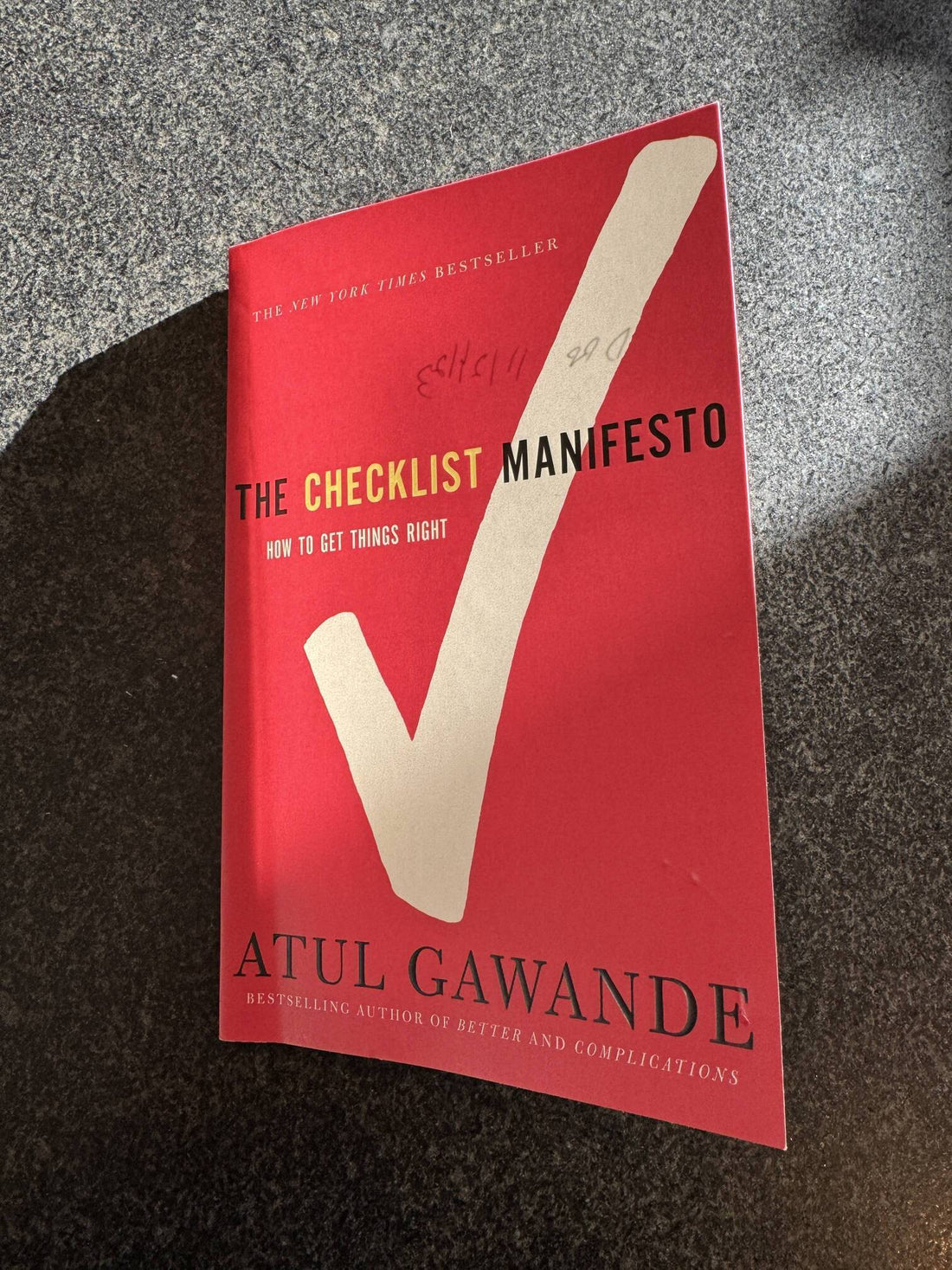If you ever had the chance to sit down and get a beer with a surgeon, you're in for a treat. These individuals are generally among the pinnacle of what humans have to offer. Imagine the mindset it takes to slice into a human, their life literally in their hands. In terms of a high-stress job, this one is it.
To do the job requires a decade of training and an education level higher than any other profession. Even at this level of education, dedication, and professionalism, things that should not be forgotten, do. In the heat of the moment, simple humans create errors that can snowball. Truth be told, according to the author, mistakes are all too common in the operating room. Things such as giving the wrong medications or, God forbid, operating on the wrong appendage.
The author of this book set out to implement a simple way to reduce the number of errors that could occur in the operating room: the checklist. He started with very simple things first, like everyone on the team introducing themselves and their role. He added a brief overview of what kind of work would be done, any unique patient concerns, and an opportunity to bring up concerns they may have. He added a spot to verify that antibiotics were given and during the specified timeframe. He even added a check on what kind of medications would be given.
The results he found were mind-boggling, substantially reducing the number of errors in the operating room and subsequently reducing the chance of patient mortality exponentially.
For several years now, I have utilized a checklist book to help accomplish tasks. It started in my work as a Trooper. I would start things in cases, inevitably get a call, and then when I got back to the barracks, it would take me 10 minutes to figure out what I needed to do again. By creating a checklist book and an order in which I did everything, I could simply look at the list and drop back into what I was doing in the past. I quickly found that the quality of my work got so much better, and I found myself not wasting nearly as much time. I was always able to get my work done on time and never missed a task that the sergeant would pick up on.
Now, I use it for everything under the sun and use it to plan my day. What tasks do I need to get done? What tasks will require several weeks to accomplish? In the busy world we live in, I find it creates a great way for me to wrangle it all in. I put sample things on it as well, like working out or vacuuming the house. It's a planning tool for the day. I also think that putting pen to paper solidifies further in the mind that something needs to get done.
I greatly enjoyed the book. It was a quick read but solidified to me further that the effort I put into creating daily checklists is 100% necessary and a game-changing way to increase productivity while also improving the quality of work I get accomplished.

